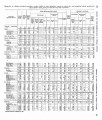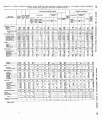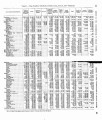| Title |
Annual Report of the Commissioner of Indian Affairs -1923 |
| Subject |
Indian reservations; Federal government; Indians of North America; Maps; Work; Livestock; Food; Indians of North America--Education; Land use; Allotment of land; Treaties; Agriculture; Railroads; Timber; Health; Art; Religion; Indians of North America--Social life and customs; Natural resources; Ute Indians--History; Education; Culture; Irrigation; Water rights; Indigenous peoples--North America |
| Keywords |
Annual Report; Indian Agency; Reservations; Land Rights; Tribal Funds; Resources; Native Americans |
| Publisher |
Digitized by J. Willard Marriott Library, University of Utah |
| Tribe |
Ute |
| Language |
eng |
| Description |
Excerpts concerning Utah from the Annual Report of the Commissioner of Indian Affairs - Courtesy of the University of Wisconsin Digital Collections. The Commissioner of Indian Affairs submits a report regarding the progress of irrigation, the restoration of lands in San Juan County, Utah to public domain, and employment of American Indians (especially students) on farms and ranches. The Commissioner's report includes demographic data about the various American Indian reservations and schools |
| Type |
Text |
| Coverage |
San Juan County (Colo.); Washington (D.C.) |
| Format |
application/pdf |
| Rights |
Digital Image © 2011 America West Center. All Rights Reserved |
| ARK |
ark:/87278/s68m05r4 |
| Creator |
Commissioner of Indian Affairs; Burke, Charles H. |
| Date |
1923 |
| Spatial Coverage |
Utah; Washington (D.C.) |
| Setname |
uaida_main |
| ID |
377344 |
| Reference URL |
https://collections.lib.utah.edu/ark:/87278/s68m05r4 |
























































